#but I don’t really think anyone else could play Tim for more than a cameo unless it’s again Lauren but I’d want her being Emma in the ep
Explore tagged Tumblr posts
Text
Nightmare Time 3:
if we ever get a NMT3 (🤞), not that I want to see the return of the abusive husband character cause he can choke and die, but like… Becky leaves Stanley to die in the Witchwood.
Emma says it in Perky’s Buds and it’s reinforced in Abstinence Camp with Little Jerry
“Things grow here. They grow fast, and big, and different.”
And uhhhhh, the dead don’t really die in Hatchetfield always and a person who’s not CONFIRMED to be dead? I cannot help but wonder if he’s been mutated by the Witchwood and still out there and I think that could be a compelling episode centered around Becky/Tom and Tim. The thought ‘He’s still alive’ has quite literally not left my brain since I first watched the digital ticket of Black Friday and Becky said how she ‘killed’ him.
#also if we ever get nightmare time 3 i REALLY REALLY hope Kendall comes back for Tim and Hannah!#Lauren fucking KILLS it as Hannah in Yellowjacket#just as Kendall KILLS it as Hannah in Black Friday#two phenomenal actresses embodying that role fr#but I don’t really think anyone else could play Tim for more than a cameo unless it’s again Lauren but I’d want her being Emma in the ep#hatchetfield#nightmare time#nightmare time 3#team Starkid#Starkid#Becky barnes#Stanley hatchetfield#Tim Houston#Tom Houston#Tom Houston x Becky Barnes
57 notes
·
View notes
Note
Eric still talks a lot about Chenford on the cameos now. But I did notice he slacked off there for a while about a yr, he really didn’t tag a lot of stuff or talk about Chenford and it all came down to when SOME fans got creepy and started shipping him and Melissa irl not being able to separate the two and tweeting Ros saying that him and Melissa should run away together. Making edits on TikTok, cutting Ros’s face out and putting Melissa‘s in to which I know Ros did not like that at all she tried laughing it off on the podcast, but you could tell it bothered her. I mean there’s always a few that ruin things for everybody else. So a PSA, if people love the show and these characters, don’t be disrespectful to anyone’s spouses or boyfriend’s girlfriends.
Thank you for providing some more context, dear Anon :) I just want to clarify that when I mentioned this issue in my previous reply, I didn't mean to imply that this was why Eric wasn't posting as much about Chenford (or tagging). I simply meant that it wasn't the first time that it happened. I honestly haven't followed what was going on over there since the summer hiatus.
And yes, you're absolutely right : he does still talk about them - or even hype them - a lot on Cameos, so I'm not sure that it's entirely fair to say that he is distancing himself from Chenford. That said, Cameos are quite different than Instagram posts since he is directly asked questions about Lucy and Tim. It's not quite the same as him posting pictures or videos on his social media for everyone to see, if you know what I mean. Not to mention that there is a transactional aspect to cameos that come into play. Don't get me wrong, I'm sure he could always ignore them if that truly bothered him, which is why I'm not particularly worried about what his distancing means. On a side note, I don't think him not tagging posts #chenford is much of an issue either, considering that most will see them anyway, by virtue of following him in the first place.
As for the issue you're mentioning… It's unfortunately nothing new. I have yet to see one fandom where that type of issue didn't come up at some point. I'm not going to lie, I really love Meleric and their dynamic (or at least, the part that we see)… If someone wants to make edits and all, why not. What I don't understand is the need some feel to tag his wife in these… Or to be straight up disrespectful. What's the point?! Like you said, the only thing it is going to accomplish, is making Eric stop posting and sharing contents. Or limit the comments and interactions. It seems counterproductive to me… But that's just me :)
6 notes
·
View notes
Text
A RETROSPECTIVE ON YOUNG JUSTICE: or me trying to fix what aint broke.

First of all, I want to preface this by saying I know this is a "Marvel Comics" account, its literally in my name, and young justice is neither marvel or a comic. but it is the only DC property I really care about and if I posted this to my main it wouldn't be seen by anyone so forgive me
I also originally wrote this in long text message form to a friend (sorry @flashgame) who has only seen up to half way through season 2, so I haven't included anything about large plot points in seasons 2 and 3. Thats not really what this is about tho so I think my points still stand. These are also just my garbage opinions, I love this show I am just venting and you may disagree, you will probably disagree but I sometimes just have to get stuff like this out my system and thats what's this blog is for. I will go back to making memes about decades old X-men comics after this I promise.
With that out of the way here's my rant :)

For me, young justice’s biggest asset, the ensemble cast is also its biggest flaw. don't get me wrong, incorporating many characters (including obscure ones) into the team gave the show great character dynamics, the freedom to do what they wanted with less popular characters and great fan service for everyone. Buuuut it’s also completely inconsistent with who gets the spotlight and it’s plagued with the problems of just having too many characters. Some characters get huge storylines, massive amounts of screen time, often more than they ever got in the comics and that’s great! it seriously is, young justice is the best adaptation of characters like Kalder, M’gann and Artemis etc it’s literally the most time in the spotlight they ever get. but it’s like the writers just can’t help themselves when adding extra characters! it starts out in season 1 and gets exponentially worse by season two.

What you may notice by season 2 is that, with the new characters introduced, some have been given more air time than others. it definitely starts in season 1. Season 1 is a damn perfect study into how to introduce and build characters, having them each have storylines and later, relationships with each other. the show begins by showing us it’s not sticking to the normal way of doing an ensemble kids show, with the main team meeting in the first ep or two and then remaining the same until maybe one other character is added or a whole lot in a second season as a “new class” (Think X-men evolution adding the new mutants in season 2). Instead M'gann isn’t added till like ep 3 and artemis isn added till like ep 5/6?? i can’t remember trust me it’s quite late for a main team character to be introduced in a first season. that’s probably the first warning sign, even the original team takes a while to form but things are still ok, even the inclusion of Zatanna works kinda because she has the storyline with her dad. but Rocket? yeah...rockets a weird inclusion

she’s added in the last two episodes of the first season and then by season 2? she’s left again and is in the justice league. she gets two episodes!!! two! to be in The Team! like that’s weird and telling of what happens next. the show sticks to a varely normal schedule of adding new members, similarly to X-Men evolution, and like evo those new characters aren’t focused on that much. but evo handelled it better. when it comes to new characters it’s obvious that some are getting much more screen time than others, and some are just more compelling too. the time jump really screws stuff up, adding new characters in (and removing others like Rocket) in the five years off screen means they have to do a good job making us like them because we’re not introduced to them in an organic way.
take Mal and Bumblebee, technically we see them in season 1 but they’re basically cameo/easter egg roles. by season 2 they’ve joined the team and they don’t really get a lot to do after that either. it’s weird and because of the time skip we don’t see them joining, we don’t see bumblebee getting her suit (yeah we can infer it’s from The Atom but really they skip a lot) you might argue that this is necessary for a lot of characters, people like bumblebee, batgirl or even wonder girl have these backstory that don’t really fit in so they're just skipped over to make room for the easily included story’s like blue beetles and impulses

but we still feel like we’re missing something. talking of some of the characters let’s actually look at who got added right? In season 2 its starts to become obvious characters are coming to the front and other are in the background. beast boy is well set up in season 1, he’s well incorporated into the story of a main team character and even tho he’s not integral to the plot of season 2 he works great. same goes for blue beetle and impulse, they’re both great new characters with interesting personalities, backstorys and they do plot relevant things. lagoon boy is also an inclusion that seams necessary, he’s obviously there to be part of the love triangle thing but he’s also useful to randomly get captured and be an annoying character to piss of other members of the team. everyone else tho? it’s really hard justifying them being there. Batgirl, Tim, Wondergirl, Bumblebee and Mal just...don’t do anything. yeah they get thrown a bone once or twice but really it feels like the roles they fill could be filled by other already established people? or they could have been side characters outside of the team. they feel shoe horned in and they don’t get any time to grow. instead storylines focus on the original team, (which is kind of inevitable) and season 1 side characters like Red Arrow, and, of course the previously mentioned new characters that actually work with the story.

i can definitely see why some of these characters were added, Mal and Karen were set up in season 1 so i assume the writers always planned for them to be in season 2. the time skip (let’s be honest) is pretty much entirely there to facilitate Dick becoming nightwing and so of course both Jason, and then Tim (probably because jason comes with too much baggage) had to be included. Batgirl also seasons like a solid choice because she’s from that era of batman and it might seam strange not to include her. and wonder girl continues the “The Teams is made of sidekicks” thing. but come onnnn. Tim and Barbara could have been side characters who we see in one episode (maybe one with Dick dealing with being replaced as Robin or something) and the same can be said about Mal and Bumblebee (wonder girl can be cut tbh)
you can also argue that yeah, maybe the plan was to flesh these characters out in season 3 but it got cancelled. but the season 3 we got adds even more useless characters and actually pushes the good characters from this season into the background. even if changes were made in between the cancellation of the original season 3 and the one we got, i stiiilll think they’d have added the useless characters (this is a bit harsh but season 3 does add a lot of new characters) and not focused on the ones they already had because we saw it in season 1 with Zatanna and Rocket. it’s like the writers get bored easily with characters or something? like they just can’t stop themselves adding new toys to play with. I love this show so much, but after a now third rewatch i still believe the same thing i thought the first time i watched this, I love all the characters, i love all the references but god there are so many characters and so many references
18 notes
·
View notes
Text
Gotham Knights: Story
“In breaking news, we’ve received reports of an explosion somewhere north of the city.” “We’re still waiting for the police to confirm if there are any victims.” “This story is evolving rapidly, please bear with us.” “We hear this really loud, ‘boom’... there was smoke everywhere.” “Emergency services have confirmed that they have discovered a body buried in the wreckage. We’re still waiting for further details.” “Many emergency vehicles are on sight!” “It appears that a large portion of the building has actually collapsed!” “In International news, an explosion rocked Gotham City earlier today.” “We’re now able to confirm that billionaire philanthropist Bruce Wayne is--”
This game is kicking it off with a “BANG” worthy of the Joker’s attention. Bruce flipping “Batman” Wayne is allegedly killed in some kind of explosion and it’s up to our rag tag team of “Gotham Knights” to keep Gotham safe.
Yes, I said “allegedly”. This may be jumping the gun a little and nothing in the trailer hints at it, but I do believe that Batman is still alive. I think he thought he was going to die, but ended up getting kidnapped by the Court for some kind of plan-- but I’m getting ahead of myself.
Breaking it Down
Here’s what we know about the story so far from the trailer and game play demo:
Bruce is “dead” (Nothing short of a body, tested and proved to not be a clone, duplicate, or just a decoy will convince me otherwise), as the result of some kind of explosion that literally rocked the city.
He’s left Nightwing, Batgirl, Red Hood, and Robin the Belfry as a place of operations
He has also asked them to protect Gotham for him
For some reason, Bruce was alone when he died. It is unclear if he was in his “Batman” get up at the time of his death, or if he was “Brucie”.
Jim Gordon is dead and has been for some time. The result of his death is the GCPD doesn’t trust the Bats anymore.
Alfred is alive (Thank Gotham for that) and helping the Batfam
Mr. Freeze is involved in the game as a villain, most likely not the main villain but part of the main campaign. His plan involves freezing Gotham for reasons unknown.
The Court of Owls is the main bads of the game and may or may not have killed/kidnapped Bruce.
A few random minor points (with pictures!):
Jason has most likely been killed by the Joker and brought back with the Lazarus pit (as seen from the white in his hair and where that scar on his face most likely came from).
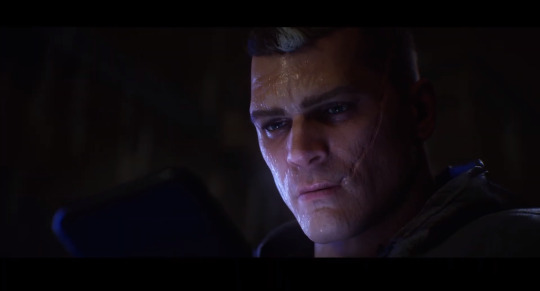
Barbara has most likely been shot and paralyzed by the Joker, but has since recovered as seen by the wheelchair in the foreground of the Clock Tower.
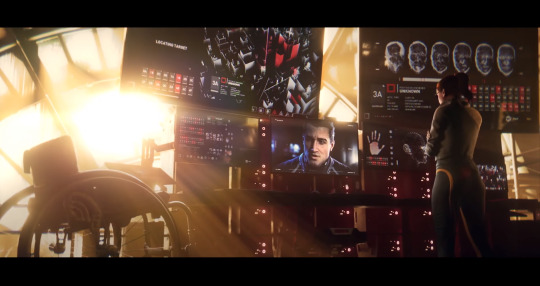
“Robin” is most likely Timothy Drake due to the science stuff surrounding him in his hideout/Titan room(?), the fact that he HACKED THE WATCHTOWER, and the cup of coffee on his desk (Honestly, the last point is the one that backs this claim up the most).

Story may or may not play out differently depending on which Batfamily member you are playing as (Robin is not seen in any of the cut scenes with Batgirl during the game demo. This could be something they are adding in/was not ready for the demo, but I highly doubt it)
Speculations/Spit-balling Some Stuff
Bruce may have blown up the cave with him in it based on his comment about ��this message was sent out when I destroyed the cave and it’s contents”. This is unclear as we do not know what blew up only knowing it was north of the city. Why he would do such a thing is beyond me, but these are the people who did Arkham Knight so who knows.
This may be some kind of “Found Family” story with the four batkids coming together with Alfred to bring justice for their Batdad. If so, I am all for it and am crossing all my fingers and toes.
I am severely concerned that the Court of Owls not only “killed” Bruce but is also responsible for Jim Gordon’s death. And for good reason because HAS ANYONE ELSE NOTICED THE FLIPPING OWL ON JIM’S BADGE? NO? JUST ME? OKAY! (I’ll build on this in a separate post)

Other villains who may show up/I hope show up include but are not limited too: Deathstroke, a very SHORT cameo of sort from the Joker (hopefully in a flashback that helps build a character. eg. Jason or Barbra), Penguin, Ras Al Gaul (mostly because I want confirmation for a Damian Wayne DLC-- I want to see all my Bat Boys, dang it), Catwoman (as some kind of mentor character for one of the batkids, maybe?), Blockbuster, Black Mask, Dick’s evil Talon Grandfather, random members of the Court, you get the idea. Give us some of the more obscure villains mixed in with a FEW popular ones if you have too.
Calling it: Freeze’s plan is either based on a hopeful attempt to save with wife (the Court has that creepy reanimation of the Talons so maybe there’s some kind of cure he can make out of it???), or they are going to completely forget about his wife and just make him the villain for the sake of it. Please be the first thing.
At some point in the game there shall be a moment where Jason is question/confronted/kicks himself out because of the whole “gun” thing. Heck, it may start that way with Jason having to prove to his siblings that he can be trusted.
I’m hoping each character gets their own separate development/different story line and that we actually get them going through the separate stages of grief. Heck, each kid could be stuck on a specific stage (Tim on denial, Jason on anger, Dick on grief, Barbra on acceptance because she’s gone through this before very recently) Give us emotional batfamily, you cowards.
Building on that, I am hoping for separate campaigns/story lines for specific characters, which can serve as side missions or go to the main story, depending on the mission. (eg. Dick vs Blockbuster could be an optional side mission. Dick vs evil Talon grandfather would be essential to the main story)
Part of me wants Barbra and Dick to be “dating” or have had a past relationship. The other part of me just wants them to be friends/siblings so we’ll just have to see how the characters interact.
Give me an Alfred who kicks butt with his shotgun when the Talon’s invade the Belfry (“when”, NOT “if”)
If the Talon’s have Bruce, then I want an evil Batman vs the Batkids. And I don’t mean for one fight, I want him showing up half-way through the game and the kids have to fight to get him back. Give me a brainwashed Bruce that’s only snapped out of it because of his kids!
I want to see Tim transition from Robin to Red Robin or “Drake” if you have too.
A fight for the cowl between the kids before someone (most likely Alfred) steps in and tells them to be themselves, it’s what Bruce would have wanted.
Timothy Drake vs Ras Al Gaul
Jason Todd vs Black Mask
Barbra Gordon vs whoever killed Jim Gordon/is responsible for his death
Dick Grayson vs Deathstroke
Justice League references (mention Superman, Wonder Woman, the Green Lanterns, etc)
Please make this story stretch over MULTIPLE NIGHTS. Preferably longer than one month but I’ll take a week-- heck, I’ll take three days if you can’t make it longer. Change up the character for ever “night”, change the mission types (stealth, fight, info gathering, etc), do SOMETHING.
If DLC is a thing, I want to see Bruce Wayne “Batman” , Damian Wayne “Robin”, Duke Thomas “The Signal”, and either Stephanie Drake “Spoiler” or Cassandra Cain as “Black Bat” or “Orphan”. And add some story for all of them, pretty please?
Also: THEY CHANGED THE COURT NURSERY RHYME AND I HATE IT.
#gotham knights#story speculation#court of owls#mr freeze#nightwing#dick grayson#red hood#jason todd#robin#timothy drake#batgirl#barbra gordon#batman#bruce wayne#alfred pennyworth#main story#side missions#HYPED#character development#if you would be so kind#give me the batfamily#batfamily#long post
80 notes
·
View notes
Text
The Best and Worst Things About Each MCU Movie
These are all just my stinky opinions. You are allowed to disagree, you are allowed to agree. Most of these are jokes anyway. I’m honestly just happy you’re reading this. Minor Spoilers Ahead!
Iron Man (2008) -
Best: This movie almost perfectly sets the tone for the entire universe that has at that point yet to have been created. Looking back, you can imagine the feeling of “Where are they going to go from here?” and I think that’s one of the most important things that this movie needed to accomplish.
Worst: What the fuck is Jeff Bridges doing? What’s his endgame here? I get he’s trying to take over Stark Industries but how’s he gonna do that from inside that giant metal suit he uses to kill people inside their cars?
Incredible Hulk (2008) -
Best: Tim Roth is in it and I think that is pretty cool.
Worst: I haven’t actually seen it, but the cgi looks god awful, what the hell.
Iron Man 2 (2010) -
Best: Sam Rockwell is so goddamn annoying in this movie and I think that’s amazing, he’s such a little stinker.
Worst: I remember basically nothing else about this movie except some guy talking about birds, idk.
Thor (2011) -
Best: It introduces Loki, probably one of the most beloved villains in the entire franchise.
Worst: This movie is so goddamn boring and it’s my least favorite and I hate it. Don’t @ me.
Captain America: The First Avenger (2011) -
Best: The first good chunk of this movie is actually a really compelling character study on Steve Rogers and what makes him a good man. Seeing him basically being paraded as this propaganda figure and watching him struggle with this is one of the most compelling things about him as a person. Really wish they kept this up for the entire movie.
Worst: The red skull is really boring guys. He’s red, that’s it. Give me something else to work with man.
Marvel’s The Avengers (2012) -
Best: This movie proved that you can have a superhero team up with this many people and have it fucking work. It doesn’t matter if you hate or love this movie, you cannot deny the effects it has on the genre.
Worst: It’s shot like a bad CW show. It looks so ugly.
Iron Man 3 (2013)
Best: This one is actually my favorite of the bunch. Exploring the question of what makes Iron Man, the suit or the person, is shown really well here. I thoroughly dig it.
Worst: That scene where Harley flip flops about whether or not he really knows Tony makes me so irrationally angry.
Thor: The Dark World (2013)
Best: It’s slightly better than Thor, and I actually can feel myself start to have a good time whenever Loki’s on screen.
Worst: Once again, this movie is insanely forgettable. Christopher fucking Eccleston is in this movie and I could not tell you a single thing about this character.
Captain America: The Winter Soldier (2014) -
Best: This movie has one of the best hand-to-hand fight scenes in the entire MCU. You know the one I’m talking about. It gives me chills, I love it.
Worst: Having the government stand-in that Steve questions in the beginning of the movie actually be a front for N*zis that he can just beat up, and not an actual metaphor for the issues with the government today? You ain’t slick.
Guardians Of The Galaxy Vol. 1 (2014) -
Best: This is the mcu movie basically anyone can enjoy. Anybody can watch this movie and find something to love about it. The characters, the messages about family and learning to be okay with feeling love, the jokes, hell, even the space setting. THE MUSIC. It’s the full package baby.
Worst: Chris Pratt has an unfortunate cameo in this one.
Avengers: Age of Ultron (2015) -
Best: I have a couple of things. A) The party scene where we get to watch the Avengers talk and be friends with each other and act like people. B) I love James Spader no matter what he is doing.
Worst: Why is everyone quipping? Why is the robot quipping? Why would they massacre my boy like that?
Ant-man (2015) -
Best: I want Paul Rudd to marry me, best dad in the mcu.
Worst: The moment Edgar Wright left this project.
Captain America: Civil War (2016) -
Best: Introduces two great characters, Spider-man and Black Panther. These two get a lot of love when it comes to designing their characters in this movie and it makes me very happy.
Worst: It made the fandom very unhappy and I don’t like picking sides. It feels like watching your many parents get divorced for two hours.
Doctor Strange (2016) -
Best: The magic looks really fucking cool in this movie. Also, the ending with Dormammu is up there for one of my favorite endings of an mcu movie. Having Doctor Strange actually outsmart the villain instead of actually fighting him is endlessly more satisfying.
Worst: Could not tell you a thing else about this movie other than I heard Tilda Swinton plays a character that’s probably not supposed to be white.
Guardians of the Galaxy Vol. 2 (2017) -
Best: Guys, I gotta come clean about something. I actually like this one better than Volume 1. I know, I know, a good majority of people do not feel this way, but I feel a lot more emotionally attached to the movie, and that’s mainly because of two characters: Yondu Udonta and Rocket Racoon. Rocket realizing that he’s an asshole but his found family still loves him gets me, man. I can’t help it. Helps that Ego is a great villain as well. Also the cinematography is some of the best in the mcu.
Worst: No Howard the Duck.
Spider-Man: Homecoming (2017) -
Best: I think the best thing about this movie is just the solidness of it all. No one part stands out as the best because most everything about this movie is pretty damn good. Michael Keaton will knock your socks off, go watch it.
Worst: Donald Glover is in it to tease a Miles Morales reveal, BUT NOTHING HAS HAPPENED ABOUT IT SINCE.
Thor: Ragnarok (2017) -
Best: Taika Waititi knows how to do shit right, lemme tell ya. Taking away Thor’s hammer from the beginning was probably one of the smartest choices in the movie, and this is a movie of smart choices.
Worst: Jeff Goldblum isn’t in it more.
Black Panther (2018) -
Best: Erik Killmonger is easily the best villain in a Marvel movie, and you can quote me on that. An amazing performance from Michael B. Jordan. It’s also the first Marvel movie I saw in theatres (I know, I was very late to the game)
Worst: Everett K. Ross is CIA propaganda and the last fight scene on the train tracks looks like shit.
Avengers: Infinity War (2018) -
Best: It’s really hard to sum up exactly what my thoughts are on this movie. I think one of the movie’s best qualities is the bigness of it. This movie feels huge, there’s a lot of different stuff to love here. If you like Wakanda, there’s a whole epic battle set in Wakanda. If you’re more a fan of the space stuff, we got a whole lotta space stuff. The best part of this movie is there’s probably gonna be something that everyone can enjoy packed in here.
Worst: I also think the bigness of this movie is also one of it’s larger weaknesses. Because there’s so much stuff in this movie, not all of it is fully fleshed out. Tony Stark gets a lot to do in this movie, but Steve Rogers sort of feels sidelined at parts. There’s a perfect balance that I don’t think was quite hit.
Ant-man and The Wasp (2018) -
Best: I still really love Paul Rudd in this movie, and I think his relationship with Cassie is still really cute. World’s Greatest Grandma indeed.
Worst: This movie really had its work cut out for itself, coming off the heels of Infinity War, so it sort of falls short in that respect. I don’t want to criticize it too harshly, it is what it is, nothing insanely memorable.
Captain Marvel (2019) -
Best: I still think this is a pretty good movie, despite what a lot of people think. I struggle a lot with believing that I have to prove myself to others, so having Carol finally realize that she doesn’t have anything to prove to anyone was really important to me, and probably a lot of other women.
Worst: There were parts where I wasn’t as engaged, like the scenes in the Kree empire. That made some of the movie feel off to me, it’s a bit unbalanced.
Avengers: Endgame (2019) -
Best: This movie 100% achieves what it sets out to do, and that is to be a huge cinematic event. I don’t even really see this movie as a movie, it’s more like one huge experience. My viewing had one of the most energetic crowds I’ve ever seen a movie with.
Worst: I don’t really think this movie holds up to multiple re-watches. Granted, I saw it in theatres three times. I don’t think any subsequent viewings are ever going to pack that same punch that my first viewing had, and that makes it harder to come back to. Also Steve had a totally lame ending.
Spider-man: Far From Home (2019) -
Best: After ending on such a downer note in the last movie, this felt like a weight being lifted off my chest. Jake Gyllenhaal gives an insanely energetic performance that I absolutely adore. (Also seeing it with my dad was fun, he would nudge me every time they switched locations to tell me he’d been there)(Also when I saw it with my sibling a kid ran out of the theatre during the Mysterio mind-fuck sequence, some just can’t handle that lifestyle)
Worst: Peter Parker and MJ remind me of how perpetually single I am.
9 notes
·
View notes
Text
Marvel Cinematic Universe: The Incredible Hulk (2008)
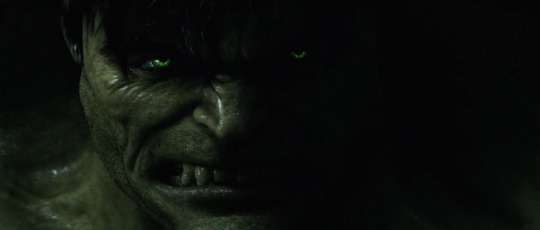
Does it pass the Bechdel Test?
No.
How many female characters (with names and lines) are there?
Two (20% of cast).
How many male characters (with names and lines) are there?
Eight.
Positive Content Rating:
Three.
General Film Quality:
Not as bad as everyone seems to remember, but also, not good.
MORE INFO (and potential spoilers) UNDER THE CUT:
Passing the Bechdel:
Martina barely has lines to start with, and she’s not even in the same country as Betty, so...no.

Female characters:
Martina.
Betty Ross.
Male characters:
Bruce Banner.
General Ross.
Joe.
Emil Blonsky.
Stanley.
Jim Wilson.
Samuel Sterns.
Tony Stark.
OTHER NOTES:
Bruce sees a bunch of guys harrassing Martina, and he almost walks away to avoid a conflict that could set off the Hulk, but then he thinks better of it and comes back to confront the guys and save the girl. It’s a shorthand way of showing the audience that Bruce is a good guy, not letting his own fear get in the way of doing the right thing, blah blah. I support that message, obviously, but I do wish they wouldn’t use ‘woman in jeopardy’ as their go-to method for proving something about a man. Martina only exists in the film for this purpose, she’s just a pretty prop so Bruce can prove his morals, and that’s not cool. Female characters existing only as props is not cool, and violence against women being used to demonstrate/further a man’s story isn’t cool either. Get a better lazy shorthand, movie.
Lou Ferrigno cameo is clearly the highlight of the whole film.
At least 60% of Betty’s lines are just her saying ‘Bruce’ with different intonations, usually as a question. “Bruce?” she whispers. “Bruce?!” she calls. “BRUCE!!!” she screams. She also almost definitely yells it in slow motion with the sound cut out during dramatic climactic points in action scenes. I don’t know, I didn’t think to take note of that.
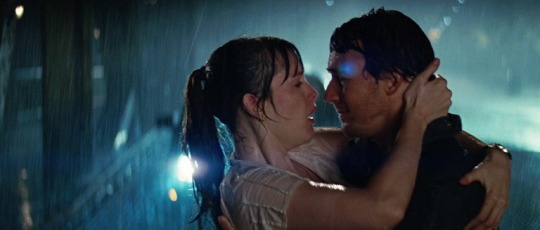
Oh. This movie. It might be the first of the MCU films I ever saw, back before they had committed to the idea of actually doing a Cinematic Universe, so it was just ‘a Hulk film’ that I watched, filed as ‘bad’ in my brain, and never revisited again, even after the MCU got going in earnest and - years later - I got sucked into the vortex and wound up watching and re-watching all the movies in order. It’s easy to leave this film out of the chronology (and many people do); despite a totally pointless scene with Tony Stark at the end of the movie, it doesn’t actually tie in to the rest of the MCU in any meaningful way, and as an intro to the Hulk it isn’t really necessary: firstly, because most people who don’t live under rocks already know who the Hulk is from popular culture, and secondly, for anyone else, they get a perfectly serviceable introduction to him in his next film appearance (The Avengers), in which the role has been recast with Mark Ruffalo, who plays Bruce Banner/Hulk in every future MCU film and leaves this Edward Norton vehicle as a weird outlier better forgotten than incorporated into one’s understanding of the character. Edward Norton is a fantastic actor who has done so much great work over the years, but this was not a good role for him, and having rewatched this movie now nearly a decade after seeing it the first time, I’ll probably go back to giving it a miss whenever I trawl through the MCU. It’s a film with, basically, nothing to offer, neither as a standalone nor as part of a wider franchise. That’s a pretty sad indictment, but there it is.

Is this the worst film in the MCU pantheon to date? Probably. Not absolutely - I think the door remains open for debate (the other contenders for the title, we’ll get to in due time). The thing is, this movie is not as bad as history remembers it: most of it is actually fairly decent. Not remarkable, not impressive, but decent in the sense that it is stock-standard playing to expectation, it isn’t making any negative waves, it’s just there. The bad rep this movie has is owed almost exclusively to the way it ends, with an embarassing and meaningless Hulk/Abomination battle in which the CGI is absolutely not capable of upholding even the basic visual storytelling of two beast-creatures whaling on each other. Bonus features of that fight include: Hulk clapping his hands to put out a fire and SAVE HIS LOVE, and a truly abysmal use of the iconic ‘HULK SMASH!’ line. By the time the final fight mercifully ends, any and all goodwill the rest of the film had built up has been obliterated, much like the neighbourhood and the lives of all those poor collateral-damage civilians that no one cares about. Some beast-creatures whaled on each other in shitty CGI. That’s what we came for, right?
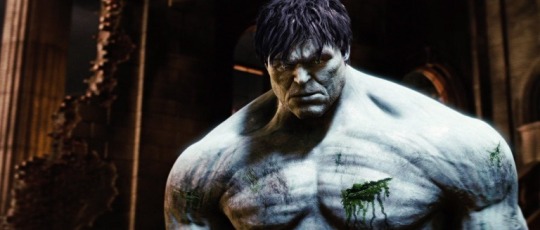
What makes this ending so particularly bad is how out-of-place it is in the rest of the narrative. Yeah, we 100% EXPECT a Boss Battle at the end, because that’s the formula for these things, but the movie does a really awkward job of not actually building up to that climax in a meaningful way that lets it feel earned rather than perfunctory. Let’s rewind; the premise of the whole film is that Bruce Banner is trying to keep his Hulky genetics out of the hands of the military, specifically a program overseen by General Ross, who happens to be the father of Bruce’s former co-worker/lover Betty, because of course he is. This detail is not actually important for any reason, it’s just an excuse for Bruce and Ross to conflict over Betty like she’s a cool shiny object, because ultimately she has no more narrative function than Martina the hot Brazilian chick. Anyway: Bruce is on the run from Ross, Ross is on the hunt for Bruce so that he can experiment on him forevermore, and Betty is there sometimes to say Bruce’s name as a question. Ross chases Bruce with lots of army guys, Bruce Hulks out at various points so that the action sequences can involve more than Edward Norton running away, and there’s a long-term goal for Bruce in the form of getting some Science to another Scientist so that they can Science a cure for his Hulky genes and he can stop running once and for all (it doesn’t work). It’s not a very inspiring script. It’s fairly straight-forward and predictable, but there’s nothing especially bad about it other than the pointlessness of Betty (the same as this is a front-runner for the MCU’s worst film so far, Betty is a strong contender for Worst Inclusion of A Useless Love Interest). Norton may not be a great Bruce Banner, but he does a solid job of giving weight to Bruce’s plight, and the overall effect is at least passable as a film, if forgettable. The problem here is Emil Blonsky, the marine tasked by Ross to head the operation to capture Banner, and the man who eventually becomes the Abomination whom Hulk battles in that cringe-worthy film climax. And the problem with Blonsky is not that he’s some kind of weak link in the script. The problem is, he’s the best character in the movie.

Maybe it’s just that Tim Roth is too good for the material (he is), but Blonsky is easily the most dynamic person in an otherwise flat film, and he’s the only character whose narrative arc isn’t instantly predictable the moment he steps on screen. He’s a consummate soldier, all about the job, and getting into the thick of things himself to make sure it gets done right. His road to becoming Abomination begins partway into the film, as Blonsky grapples with the aftermath of his first encounter with the Hulk - for which he was brutally unprepared due to Ross’ failure to provide essential mission intel - which led to the death of many of Blonsky’s men. As Ross comes clean about the super-soldier serum experiments that created the Hulk, he plucks at a few delicate nerves, noting the physical toll that years of service have taken on Blonsky’s body. Blonsky laments that he can’t take the experience he has now and put it into the body he had a decade ago; Ross suggests that, maybe, they can arrange something kinda like that. It isn’t played as outright manipulation - Ross has just told Blonsky that there were other experimental treatments in the same line as Banner’s work, and Blonsky knows what conversation they’re really having and has already seen what the side-effects could be if it goes badly - but there is plain prompting from Ross, to say nothing of the treatments he then actively facilitates, most notably the second dose which he offers despite having originally stated that if Blonsky experienced any adverse effects (which at that point he has, in limited capacity) the treatments would cease. It’s a situation in which Blonsky rapidly loses his agency, and for which Ross isn’t even a little bit blameless. What’s significant about this is not just that Ross is the ‘villain behind the villain’ in this case, but that Blonsky really...isn’t a villain in the first place.

Now, ‘villains’ in stories (and especially comics) who start out innocent/unlucky/well-intentioned and then become twisted are not uncommon, but the key to making those narratives work is that the story acknowledges the pathos of that journey; that this person never meant to end up as the villain, and it’s a sad turn of events that brought them down that road despite themselves. This is where things fall apart for this movie, because they kinda, oops, forgot to either (1) make Blonsky’s pre-serum behaviour clearly villainous, or (2) match his unwilling descent into villainy with a tone of empathy and regret for how his character has been turned astray. He isn’t presented as some paragon of goodness to be torn down, but he also doesn’t act maliciously or imply that he draws sadistic pleasure from his work. He consents to that first dose of serum, but it isn’t for evil reasons, he’s not bloodthirsty, he’s not going after the Hulk as a personal vendetta: the primary emotional motivation he displays is curiosity. He wants to get the job done, and he recognises the threat that Hulk represents, and he’s interested in finding out exactly what kind of a world he’s just been looped into. He may be antagonistically positioned against the protagonist of the film, but his intentions aren’t reprehensible from any angle. Thing is, the serum he takes is depicted as having a narcotic effect, impairing his judgment and fostering an escalating addiction that ultimately creates the Abomination; it’s all downhill for Blonsky after that first dose, the situation spins wildly out of his control, and he loses himself in the process. This is where the pathos should fit in as an essentially good (or at least neutral) person is lost to this drug, but it doesn’t. Instead, Blonsky becomes Abomination for the final act of the movie, and all of his characterisation evaporates so that he can just mindlessly smash things for no apparent reason. If he had been shown to be someone who engages in unnecessary violence and/or enjoys it at some prior point, then Abomination would be an escalation of existing villainous predilections, and it would work, but that isn’t the case. Where Hulk operates off an established base of anger/raised heart-rate/physiological response to heightened situations, and his destructive tendencies and absence of higher cognitive functions make sense in that context of reactionary hind-brain behaviour, Abomination has no established parameters or reasons for developing as he does, and searching the only information we have - Blonsky’s characterisation - for answers turns up no satisfactory results. Abomination’s rampage has nothing to do with ‘getting the job done’ (Banner is in Ross’ custody by that point in the film, in fact, so the job is already done), nor does it have anything to do with the Hulk himself - Blonsky and Banner never had specific personal beef with one another that would make a final confrontation meaningful (Bruce doesn’t even know who the Abomination is/was) - so Abomination’s entire existence feels pretty pointless. It’s just there so that Hulk can pick on someone his own size.
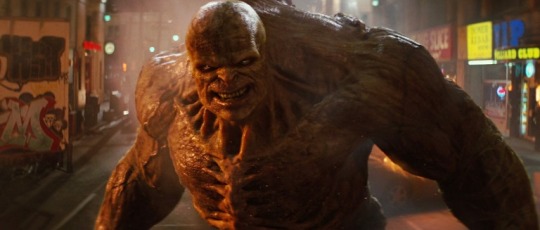
The final fight scene is objectively bad from a technical standpoint, with the dodgy CGI and the way-too-corny contrivances and the muddy uninspired visual mess of it all: it’s just plain bad to watch, but it is also not only devoid of emotional relevance or weight, it’s devoid of emotional logic. We’ve watched this process of Blonsky ‘becoming a monster’ in a literal sense, and it’s been the only part of the movie with any life in it (it’s not a deep well of complexity, but again, I think it works because Tim Roth is fucking making it work), but a boss fight is not a fulfilling conclusion to that narrative because we haven’t been given clear stakes in the outcome. Considering that Blonsky ends up a victim of Ross much the same as Bruce Banner is, it really should be Ross’ villainy that is ultimately defeated to bring us a satisfying conclusion, but the film forgets its own narrative in the course of pretending that Blonsky was the main bad guy all along, to such an extent that it bizarrely turns around and rewards Ross in the end. After transforming into Abomination, no one so much as suggests that Blonsky is still in there somewhere (his name is not even mentioned), he’s just a beast-creature now, and Ross gets to keep him and do all that fun experimenting that he wanted Hulk for this whole time, and no one challenges the idea. Remember how the whole movie was about Bruce trying NOT to get caught and experimented on forevermore by the military? Remember how that’s supposed to be a bad thing that Good Guys want to stop? Eh, who cares? Apparently not Bruce Banner, whose upstanding morals don’t extend far enough to want to save anyone else from the fate he has thwarted for himself. Not very heroic, just kinda leaving some other dude to take your place. As hardcore as Bruce was about keeping the formula out of Ross’ hands, etc, apparently he has no qualms about this derivative, and he just whistles on out of there, and that’s it. The end. Not a second thought for Blonsky’s fate, no fulfilling closure for Bruce’s ACTUAL villain beef with Ross, the bad guy gets what he wants and no one cares, the good guy completely forgets the ideals that he was fighting for the entire time and therefore kiiinda renders the whole journey of the film pointless, and worst of all, there’s no sense that the story comes to these conclusions deliberately, that it’s supposed to be off-kilter in any of these ways. It’s like they got to the final act and literally forgot everything that had happened in the film previously so they just stopped without actually closing any of the storylines, it’s a totally incongruous ending.
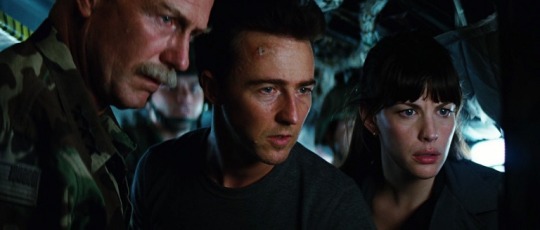
I’ve focused largely on how much they screwed over Blonsky in this process because I considered him the film’s saving grace the rest of the time, but really, the ending screws over every character, theme, and narrative thread in the whole story, and that’s the huge disconnect that leaves the audience remembering a bad film, not just a bad ending. Granted, it wasn’t a good film to start with, and if you were less engaged with Blonsky than I was and you didn’t latch on to one of the other slim elements the story offered instead, then the whole thing turning to shit in the end really can’t have been much of a loss. It’s not that they didn’t, at moments, have the makings of something that might be good, or glimmers in scenes that suggested a quality idea that might have shone if someone had polished it a little better. For anyone reading this and going ‘well, don’t you know they had loads of behind-the-scenes issues with redrafting the script and other bullshit?’, yes, I am aware of that. Thing is, it shouldn’t matter. A 150-million dollar major Hollywood franchise project doesn’t get to use ‘oh, we just didn’t really bother making sure the script made basic sense before we filmed it’ as a valid excuse. If everyone’s doing their jobs properly the way they should be at this level of the industry, then the audience shouldn’t be able to see your BTS issues bleeding all over the finished product; major script redrafts should be a Did You Know? trivia point, not an ‘oh, NOW I get what went wrong here’ explanation. At the end of the day, no one cared enough about making this a movie that would matter in the long run for an expansive Cinematic Universe. Tanking the whole film into a forgettable mistake that viewers would gladly leave out of their Marvel marathons was, ultimately, the one thing they did successfully.

8 notes
·
View notes
Text
How This Visionary Producer Is Transforming The Theater Podcast Landscape
New Post has been published on https://perfectirishgifts.com/how-this-visionary-producer-is-transforming-the-theater-podcast-landscape/
How This Visionary Producer Is Transforming The Theater Podcast Landscape
“You can’t use up creativity,” said Maya Angelou. “The more you use, the more you have.” Early in her life, someone must have told that to Dori Berinstein. This unstoppable theater, film and TV maker appears to embody creativity. She is an endless font.
Dori Berinstein
Berinstein is a four-time Tony-winning Broadway producer whose credits include The Prom, Who’s Afraid of Virginia Woolf, Thoroughly Modern Millie, Legally Blonde: The Musical, The Crucible, One Flue Over The Cuckoo’s Nest, Fool Moon, Flower Drum Song, Enchanted April and Golden Child.
Oh, and Berinstein is also an Emmy-award-winning director, producer and film and television writer. Most recently, she and Bill Damaschke, who produced The Prom on Broadway, collaborated with Ryan Murphy to adapt the show into a Netflix feature film starring Meryl Streep, Nicole Kidman, James Cordon, Keegan-Michael Key, Andrew Rannells and Kerry Washington. She also co-produced the Sony Masterworks cast album of the musical Half Time. The show was inspired by her documentary, Gotta Dance, about a group of seniors who make up a hip-hop dance troupe who perform for The New Jersey Nets.
“I love the art of storytelling and believe it’s all about a good story. Whether you’re telling it on stage or screen or in an audio drama or soap opera, I like moving between different worlds and sometimes moving a project throughout different worlds,” says Berinstein who has degrees from Smith, the Kennedy School at Harvard and the Yale School of Drama where she was a visiting scholar focusing on the business of Broadway. After working in strategic planning at Paramount Pictures she joined a tiny emerging independent film company, Vestron Pictures. Within a year, she became head of physical production and ultimately supervised production on the film Dirty Dancing. “What keeps me very excited is being able to collaborate with wonderful people,” she adds.
But if all this isn’t enough, Berinstein is also the co-founder and CEO of the The Broadway Podcast Network which produces over 100 theater podcasts, dramas, musicals and miniseries, like As The Curtain Rises, the delicious new digital soap opera that Berinstein co-wrote with Mark Peikert.
As The Curtain Rises is a dishy comedy that offers listeners a glimpse of the behind the scenes mayhem trying to birth a Broadway show. In this case there’s the challenge of getting Avvatar: The Musical to The Great White Way. Producing shows for 25 years, the drama is inspired by things Berinstein has witnessed along the way. “Our As The Curtain Rises characters are certainly “inspired” by our theater colleagues. In some cases, characteristics are exaggerated. In other instances….not so much!,” says Berinstein. “The behind-the-curtain Broadway world is definitely the perfect setting for a soap opera.”
The multi-part series features a riveting cast including Alex Brightman, Ariana Debose, Andrew Barth Feldman, James Monroe Iglehart, Ramin Karimloo, Ilana Levine, Lesli Margherita, Mauricio Martinez, Bonnie Milligan, Ashley Park, George Salazar, Sarah Stiles and Lillias White. The priceless cameos from Lynn Nottage, Alex Lacamoire, David Korins, Natasha Katz, Matt Britten and Jordan Roth are worth the listen.
Creating and producing As The Curtain Rises during the pandemic was particularly meaningful to Berinstein. “We haven’t been able to produce live theater. Even though it’s tremendously goofy and fun, this took on a whole other level of urgency,” says Berinstein. “It’s important to keep theater alive during this time. And it’s thrilling to work with and pay actors, make people laugh and try to provide some joy.”
Jeryl Brunner: What inspired you to create The Broadway Podcast Network?
Dori Berinstein: I live in Northern Westchester. Pre-Covid-19, I spent a lot of time commuting to and from New York City. I would find myself driving home after seeing theater and would be sitting in my driveway at 1:30am, listening to podcasts because the episode wasn’t over. I was so caught up in it and loved the medium, but having trouble finding theater podcasts. There was no real destination for theater podcasts. Then when I brought the company of The Prom to Google, I met Alan Seales who runs Google Talks. He then invited me to be a guest on his theater podcast. We talked afterward and shared the frustration that we couldn’t find a lot of theater podcasts. We agreed that we had to do something about it and said, “Let’s do it.” We spent ten months building and partnering with a lot of wonderful podcasters who were out there before anyone else like The Ensemblist, The Fabulous Invalid and Broadwaysted.
Brunner: How has the platform gown?
Berinstein: We launched in October, 2019 with 15 podcasts. And here we are, a little over a year later, with almost 100 podcasts. Since the beginning it was very much the plan to have podcasts and record plays, musicals, audio dramas, and soap operas. It was never to replace theater and we certainly never anticipated the pandemic. When you see a show, you want to know more. What is happening behind the curtain? There is so much additive information that we are excited to bring to life. We are in a community filled with amazing storytellers and wanted to help support and give them a voice.
Brunner: What do you hope to offer listeners?
Berinstein: It was very important from the get-go that we create a network that is representative and has many different people from all different aspects of our community. That includes onstage, behind the curtain, looking back in history and education. Having all these different artists and voices is essential, because our community is made up of so many different voices.
There is also a lot of hunger from people interested in getting into the business. So we have podcasts about breaking in and auditioning. We also have podcasts from established producers like Hal Luftig and Eva Price. Kerry Butler has one on breaking into Broadway. Justin Guarini has a podcast about auditioning. They are educational and informative. Then there are pure, goofy, fun, joyous podcasts. It’s exciting to have a lot of star power on the network with podcasts from Tonya Pinkins, Sir Tim Rice and Donna McKechnie. I love hearing those behind-the-curtain stories. It was also important for us to partner with many different regional and international theater companies and the Dramatists Guild, Variety and Playbill. We really want to be a home for everyone.
Brunner: Did you always know this was your path?
Berinstein: From a very early age, I was completely captivated by theater. I saw Carol Channing in Hello Dolly! at the Dorothy Chandler pavilion when I was five years old. And that was it. I was so just transported by that show and the whole experience of live theater. [Berinstein ultimately directed, produced and co-wrote the documentary Carol Channing: Larger Than Life.] My parents would take me to theater all the time. It was just the most thrilling thing. I had no talent. I could not sing. Even though I tried, I never got cast in anything. But I wanted so badly to be part of the world. At my school they didn’t have a student director or even backstage crew. But I still was very captivated by how things came together. In college I triple majored in economics, history and theater and created a special studies program on the business of Broadway. I became voracious about reading absolutely everything I could. So much that I learned about life and important issues came from theater and its power to enlighten and make me think.
Brunner: How did you become a theater producer?
Berinstein: I really wanted to be part of that world, but had no idea how. I didn’t know anybody. Coming from Los Angeles, I was established in film before finding my way into theater. Finally I was introduced to James Freydberg who was producing Broadway shows. We went to the Serious Fun Festival to see a short piece that Bill Irwin and David Shiner put together. I flipped over it. The show was the early stage evolution of Fool Moon. If I knew anything about producing at that point, I probably would have been nervous about producing a show with two guys who don’t speak and a ragtag band, [The Red Clay Ramblers]. It just doesn’t scream hit. But I loved everything about it.
I got thrown into the thick of it right away as a general partner producer. I didn’t even know what that meant. It was an amazing experience in every way. In previews the audience was maybe at 50% capacity. At opening night we had our associate producer stationed at The New York Times a few blocks away. This was before the paper was digital. We were in the Richard Rodgers theater where Hamilton is. At intermission he came running into the house, waiving the newspaper with the most magnificent review by Frank Rich. He wrote, “To that short list of unbeatable combinations that includes bacon and eggs, bourbon and soda, and Laurel and Hardy, you can now add Shiner and Irwin.” From that point on, the show was sold out every night and standing room only. How can you not throw your entire career in that direction after that? I loved standing in the back, listening to the audience laugh so hard and lose themselves in the show.
Brunner: Is there something you look for in a story?
Berinstein: I believe deeply in theater activism and have had the opportunity to lean into and be part of shows that say something important. I have been so fortunate to tell stories that mean something to me and I believe help make the world a better place. It takes years of your life and it’s hard to do. So you better believe in what you’re doing. With Legally Blonde, my daughter was seven. I loved the idea of telling a story that it is very cool to be smart. That message was really important to me to put out there and help inspire young women.
The Prom and Half Time all have messages that are also really important to me. When people experience these shows or listen to the cast album or watch the film adaptation, I hope they can evolve and embrace the message. In the case of The Prom it’s all about acceptance and tolerance. With Half Time, which is a Jerry Mitchell musical that was adapted from a film I made, it is taking on ageism. They also say go for your dreams, no matter what.
Dori Berinstein directed, produced and co-wrote the documentary Carol Channing: Larger Than Life. … [] After Berinstein, as a little girl, saw Channing perform live, Berinstein knew that had to work in theater.
Dori Berinstein interviews Terre Blair Hamslich for the Emmy-award-winning documentary celebrating … [] the life of Marvin Hamlisch.
More from Arts in Perfectirishgifts
0 notes
Text
Top Reads of 2017
Here’s a list of the top books I read in 2017. In favorite order 10 to 1
10. In Search Of Excellence - Tom Peters (1982)
Where May, Watts, and Frankl lay philosophical foundations for your mind, Tom Peters sets the stage for the organization.
At a time when IBM, General Motors and other dinosaur power houses reigned the scene, Peters goes deep into the underpinnings of assembling a massive collection of people working together. Keep in mind that research for this book started in 1977 and the principles still hold true today.
Who should read this book? The business nerds and students of organizational philosophy. I know that’s all of you right?
“Many of the innovative companies got their best product ideas from customers. That comes from listening, intently and regularly.”
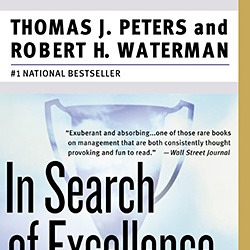
Amazon
9. Hardball - Chris Matthews (1988)
This was standard reading in highschool, but of course I didn’t appreciate it enough. With a couple years of work and exposure to corporate politics under my belt, the 2nd reading of Hardball was a lot more gripping.
Chris Matthews goes into details of political maneuvers he’s seen over the course of his career. Better yet, he backs each one up with real world examples.
Who should read this book? Anyone gearing up for corporate politics or a life in the public view.
“I’ve lived across the street from you for 18 years…I shoveled your walk in the winter. I cut your grass in the summer…I didn’t think I had to ask you for your vote. He never forgot her response. ‘Tom, I want you to know something: people like to be asked.’”
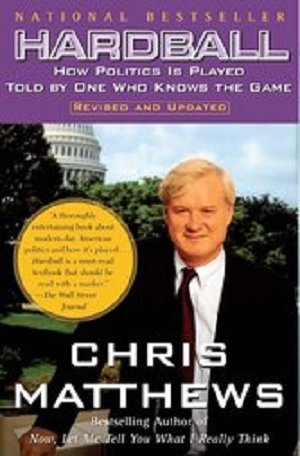
Amazon
8. The 7 Habits Of Highly Effective People - Stephen R. Covey (1989)
Stephen starts off 7 Habits with a section on “paradigms.” Simply, how do you look at the world? Through what lense do you evaluate your experience?
He goes on to explore foundational traits of people who get things done while bringing it home to each persons personal mission.
Who should read this book? Anyone who wants a strategic view, rather than tactical, for finding your life’s “Northstar” metric.
“Most people do not listen with the intent to understand; they listen with the intent to reply.”
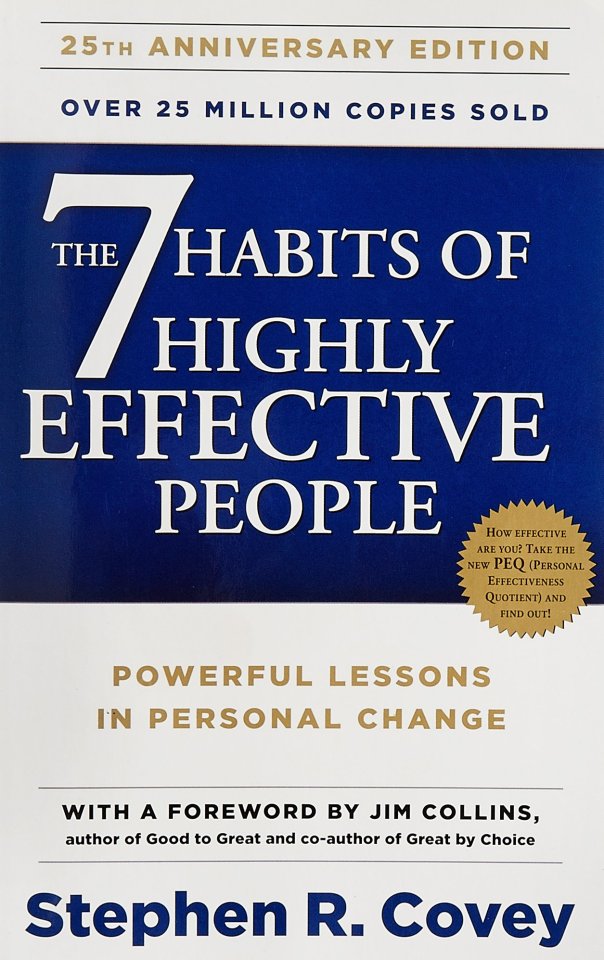
Amazon
7. Tools of Titans - Tim Ferris (2016)
“Wow that was great advice”...pretty much what I thought every page of this book. It’s long (700+ pages) account of 100+ people who’ve done amazing things and experienced extraordinary growth. Tim distills the most juicy nuggets of information from years of podcasts and interviews into this books three sections: Health, Wealth, and Wisdom.
No matter who you are, you’re going to find a new role model somewhere in these pages.
Spoiler alert: The common thread behind every successful person I’ve ever read about comes down to two words: energy & action
Who should read this book? Anyone who wants to hear about the least common denominator of success through various endeavors.
“Judge a man by his questions rather than his answers.” —Pierre-Marc-Gaston”
“Investing in yourself is the most important investment you’ll ever make in your life. . . . There’s no financial investment that’ll ever match it, because if you develop more skill, more ability, more insight, more capacity, that’s what’s going to really provide economic freedom. . . . It’s those skill sets that really make that happen.”
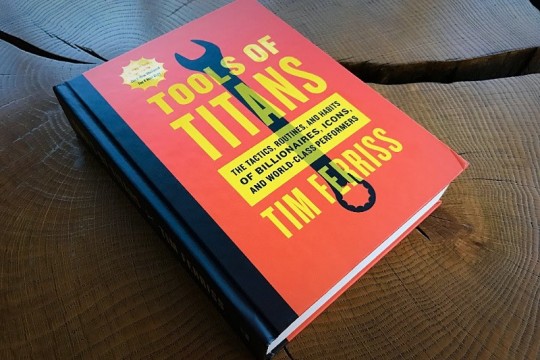
Amazon
6. Benjamin Franklin: An American Life - Walter Isaacson (2003)
Ben Frank, where do you begin? The guy left behind a legacy filled with adventure, discovery and a firm grasp of life.
I enjoyed that while learning about BF, you got a great view into what life was like in the 1700s as well as an alternative view of the American Revolution.
Who should read this book? The history buff.
“Knowledge, he realized, “was obtained rather by the use of the ear than of the tongue.”
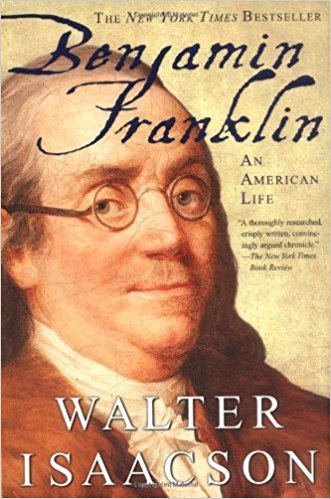
Amazon
5. Zen And The Art Of Motorcycle Maintenance - Robert M. Pirsig (1989)
A long and difficult book that I couldn’t put down. The topics were as high up in the alpine meadows of philosophy as the metaphors laid throughout the story. Many people told me this book was about “quality” but it was so much more than that.
Phaedrus simply had his mind turn inside out. A circle that inverts, a hand that grasped itself, a mind that broke through consciousness.
“You look at where you're going and where you are and it never makes sense, but then you look back at where you've been and a pattern seems to emerge.”
“Is it hard?' Not if you have the right attitudes. Its having the right attitudes thats hard.”
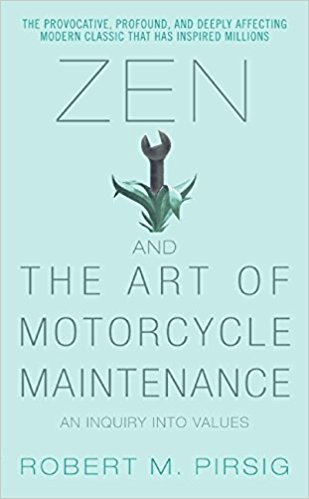
Amazon
4. 100-Year-Old-Man - Jonas Jonasson (2012)
Cute fictional read about an old man goes on an adventure and decides not to return home. This one reads like Forrest Gump, a likable oblivious main character traveling the world while playing cameos in major historical events.
Who should read this book? Someone looking for an easy break from their slew of business non-fiction reads.
“Never try to out-drink a Swede, unless you happen to be a Finn or at least a Russian.”
“...you'll see that things will turn out like they do, because that is what usually happens - almost always, in fact”
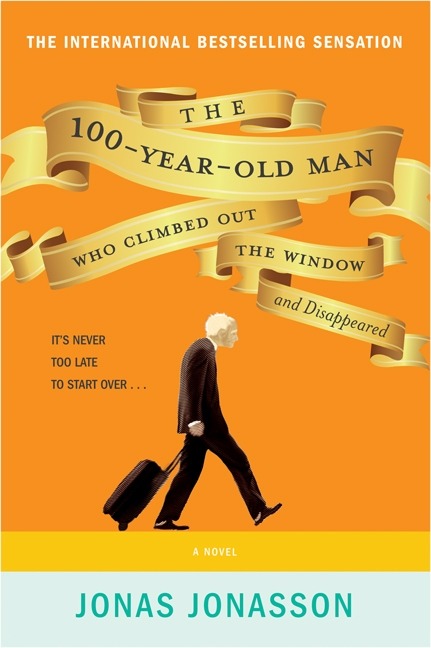
Amazon
3. Zen In The Art Of Archery - Eugene Herrigel (1948)
After a bunch of Alan Watts and Zen/Motorcycle, Zen In The Art Of Archery was a natural next step. A german professor goes to Japan to learn the ways of Zen from a master.
This book blew my mind with the language of a feeling that happens when a person connects with the oneness of the world. A feeling that goes beyond words.
Don’t go into it dry, warm yourself up with other philosophy reading beforehand. It’s hard to connect with this book cold turkey.
Who should read this book? Anyone on the tail end of an eastern philosophy phase.
“Don't think of what you have to do, don't consider how to carry it out!" he exclaimed. "The shot will only go smoothly when it takes the archer himself by surprise.”
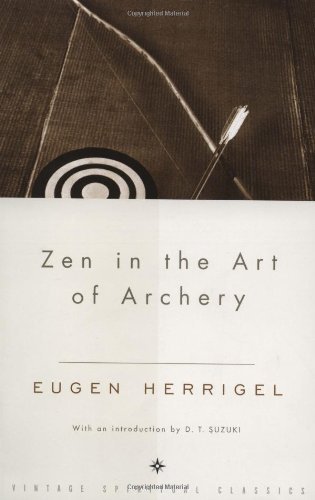
Amazon
2. American Kingpin - Nick Bilton (2017)
Real life racketeering, drugs, murder, Bitcoin, cybercrime and...San Francisco. What else could be better than that for someone in the Bay Area? This book will leave your on the edge of your seat as you watch Ross create a business from his bedroom that ended up doing $1B+ in sales of illegal items.
Bilton does a great job keeping the reader engaged through movie-like scene transitions and build ups. I’ll be surprised if this story doesn’t become a movie in the next 5 years. I hope Christopher Nolan or Scorsese gets it.
Who should read this book? Anyone remotely interested in cryptocurrency or rag-to-riches crime stories.
Extra: Here are two internet breadcrumbs that got Ross caught. 1. His first promotion of the site in Jan ‘11 2. Him asking a coding question on stackover flow about Tor/php
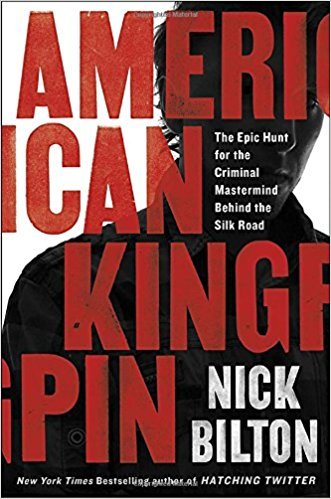
Amazon
1. The Autobiography of Malcom X - Malcom X (1965)
Absolutely amazing book that shows how Malcom X came to be through his own words. While you can’t take everything he says for truth, this book is an amazing perspective that connects many dots throughout the civil rights movement.
Malcom X was ~90% done with this book before he was assassinated in New York. The amount of passion that flows through his words tell a tale of energy that always found an outlet, either through crime, development, or civil rights.
Who should read this book? Anyone ready for a heavy read on the transformational story of a civil rights leader.
“The main thing you got to remember is that everything in the world is a hustle.”
“So early in my life, I had learned that if you want something, you had better make some noise.”
“The ability to read awoke inside of me some long dormant craving to be mentally alive.”
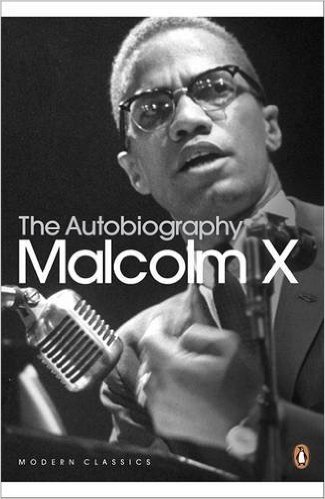
Amazon
1 note
·
View note
Text
An interview with Nobel laureate Richard Thaler on debiasing the corporation
Here is a brief excerpt from an interview of Richard Thaler conducted by Bill Javetski and Tim Koller for the McKinsey Quarterly, published by McKinsey & Company.The University of Chicago professor explains how executives can battle back against biases that can affect their decision making. To read the complete interview, check out other articles, learn more about the firm, obtain subscription information, and register to receive email alerts,please click here.
To learn more about the McKinsey Quarterly, please click here.
* * *
Whether standing at the front of a lecture hall at the University of Chicago or sharing a Hollywood soundstage with Selena Gomez, Professor Richard H. Thaler has made it his life’s work to understand and explain the biases that get in the way of good decision making.
In 2017, he was awarded the Nobel Prize for four decades of research that incorporates human psychology and social science into economic analysis. Through his lectures, writings, and even a cameo in the feature film The Big Short, Thaler introduced economists, policy makers, business leaders, and consumers to phrases like “mental accounting” and “nudging”—concepts that explain why individuals and organizations sometimes act against their own best interests and how they can challenge assumptions and change behaviors.
In this edited interview with McKinsey’s Bill Javetski and Tim Koller, Thaler considers how business leaders can apply principles of behavioral economics and behavioral finance when allocating resources, generating forecasts, or otherwise making hard choices in uncertain business situations.
Write stuff down
One of the big problems that companies have, in getting people to take risk, is something called hindsight bias—that after the fact, people all think they knew it all along. So if you ask people now, did they think it was plausible that we would have an African-American president before a woman president, they say, “Yeah, that could happen.”
All you needed was the right candidate to come along. Obviously, one happened to come along. But, of course, a decade ago no one thought that that was more likely. So, we’re all geniuses after the fact. Here in America we call it Monday-morning quarterbacking.
One of the problems is CEOs exacerbate this problem. Because they have hindsight bias. When a good decision happens—good meaning ex ante, or before it gets played out—the CEO will say, “Yeah, great. Let’s go for that gamble. That looks good.”
Two years later, or five years later, when things have played out, and it turns out that a competitor came up with a better version of the same product that we all thought was a great idea, then the CEO is going to remember, “I never really liked this idea.”
One suggestion I make to my students, and I make this suggestion about a lot of things, so this may come up more than once in this conversation, is “write stuff down.” I have a colleague who says, “If you don’t write it down, it never happened.”
What does writing stuff down do? I encourage my students, when they’re dealing with their boss—be it the CEO or whatever—on a big decision, not whether to buy this kind of computer or that one but career-building or -ending decisions, to first, get some agreement on the goals, what are we trying to achieve here, the assumptions of why we are going to try this risky gamble, risky investment. We wouldn’t want to call it a gamble.
Essentially memorialize the fact that the CEO and the other people that have approved this decision all have the same assumptions, that no competitor has a similar product in the pipeline, that we don’t expect a major financial crisis.
You can imagine all kinds of good decisions taken in 2005 were evaluated five years later as stupid. They weren’t stupid. They were unlucky. So any company that can learn to distinguish between bad decisions and bad outcomes has a leg up.
* * *
We’re doing this interview in midtown New York, and it’s reminding me of an old story. Amos Tversky, Danny Kahneman, and I were here visiting the head of a large investment company that both managed money and made earnings forecasts.
We had a suggestion for them. Their earnings forecasts are always a single number: “This company will make $2.76 next year.” We said, “Why don’t you give confidence limits: it’ll be between $2.50 and $3.00—80 percent of the time.”
They just dropped that idea very quickly. We said, “Look, we understand why you wouldn’t want to do this publicly. Why don’t you do it internally?”
Duke does a survey of CFOs, I think, every quarter. One of the questions they ask them is a forecast of the return on the S&P 500 for the next 12 months. They ask for 80 percent confidence limits. The outcome should lie between their high and low estimate 80 percent of the time. Over the decade that they’ve been doing this, the outcome occurred within their limits a third of the time, not 80 percent of the time.
The reason is their confidence limits are way too narrow. There was an entire period leading up to the financial crisis where the median low estimate, the worst-case scenario, was zero. That’s hopelessly optimistic. We asked the authors, “If you know nothing, what would a rational forecast look like, based on historical numbers?”
It would be plus 30 percent on the upside, minus 10 percent on the downside. If you did that, you’d be right 80 percent of the time—80 percent of the outcomes would occur in your range. But, think about what an idiot you would look like. Really? That’s your forecast? Somewhere between plus 30 and minus ten? It makes you look like an idiot.
It turns out it just makes you look like you have no ability to forecast the stock market, which they don’t; nor does anyone else. So providing numbers that make you look like an idiot is accurate. Write stuff down. Anybody that’s making repeated forecasts, there should be a record. If you have a record, then you can go back. This takes some patience. But keeping track will bring people down to earth.
* * *
Here is a direct link to the complete interview. Bill Javetski is an executive editor with McKinsey Publishing and is based in McKinsey’s New Jersey office, and Tim Koller is a partner in the New York office.
from personivt2c http://employeeengagement.ning.com/xn/detail/1986438:BlogPost:198837 via http://www.rssmix.com/
0 notes
Text
Flying Lotus Made a Feature Film and It's F*cking Disgusting
Steve Ellison, the artist primarily known as Flying Lotus, wants to "show people the ugly," so the Grammy-nominated producer made a film. His directorial debut, under the name mononym,"Steve," comes with Kuso, a new body horror comedy that follows the lives of disfigured men, women, and children living in Los Angeles after a catastrophic earthquake. Projected through a network of discarded televisions, Kuso bounces from screen to screen in a series of interwoven vignettes that depict intimate character profiles set in a post-apocalyptic universe.
The film has made a lot of noise since massive walkouts during its first screening at Sundance back in January prompted critics to call it both "grotesque" and straight-up "disgusting." The Verge went as far to label it "the grossest movie ever made." Within the film's 95-minute runtime, among other things, an erect penis is stabbed with a giant steel rod, a man gives birth to a cockroach anally, and a talking neck boil performs oral sex.
Beyond the profusion of bodily fluids, the costume and set design seen throughout the live action sequences are perhaps the most eye-grabbing components of the film. Kuso combines eerie animation, comedy, bizarro special effects, dynamic prosthetic work, with, expectedly, a kickass score featuring contributions from Kamasi Washington, Aphex Twin, and Akira Yamaoka. The film is also riddled with brilliant cameos from Hannibal Buress, Tim Heidecker, Anders Holm, and George Clinton. Creators recently spoke with Steve over the phone to talk about his hands-on approach to filmmaking and some of the things he learned during this two-year making of Kuso.
Creators: The physical layout of each scene, from the furniture to the props, creates a thoroughly complete image that's hard not to appreciate. How did you and the other writers work with the art department to bring this vision to the big screen?
Flying Lotus: I was so in the trenches with this film. I got to get real specific about the details. Like, the early Tim Burton movies are so him, and I knew I was gonna do that with this movie; I knew this was gonna be the one I got super dirty with. This is the movie where you see things from my sketchbook come to life. I really wanted it to be that kind of project. I really wanted to dig deep for it, but I also had really talented designers around so it was a combination of both. I had this vision of this taking place in kind of like a pre-internet world, a world where the technology hadn't really blown up yet. I wanted to show that mid-90s kind of vibe. Everything kind of stems from that place—it was a lot of fun, though. I love doing all the little details, designing the characters outfits, designing some of the prosthetic stuff, and the monsters.
What was your introduction to animation and video like?
I was just messing around in Photoshop, learning how to make things look weird and funky. And then I just kept doing it. I would have my friends send me pictures and stuff and then I would just do up their faces all crazy, just for fun. It was something else to do other than just draw in my sketchbook. And then it just kept evolving into this thing.
I imagine making electronic music and editing sound translates pretty well to using programs like Photoshop and After Effects. Was that your experience?
Absolutely. That's why it didn't feel completely unnatural to go in that direction. It just felt so similar, it just felt like now I'm editing visual, photoshop layers instead of audio. But I mean they are also so different. I think early on, when I was just fucking around with PS and AE, I saw how much the stuff I made was bothering my friends. They would be like, "Ugh, oh my god, what is that?" And I was like, "Well, something about this is doing something for them right now."
Was it your intention to make a film that would elicit that sort of reaction?
I didn't set out to make this vile film that people couldn't even sit through. More so, I wanted to show people the ugly. I wanted to show people some ugly at a time when everyone is trying to look pretty and everybody wants their face on everything. I wanted to show you your ugly ass in all its glory.
I saw that Eddie Alcazar is one of the producers on the film. Does Kuso feel like a sort of natural progression from the short you made with him last year?
It was all a perfect storm that led up to this. But yeah I think the last pieces of the puzzle came when I worked with Eddie Alcazar on FUCKKKYOUUU. To me, that film was hugely influential in my wanting to make a movie and mustering up the courage to actually do it. He and I became really good friends after that project, and while we were working on it, we pretty much came up with it together. He had the idea, I had the music. But it didn't happen until we met and were in a room together. We just kept exchanging ideas and it became what you saw. And I felt so close to that. I felt like, "Man I can do this. I'm ready. And you know what? Eddie can help me. If he says we can do it, and he knows some people, lets just do it. Fuck it." Then I got some money and so we were like, "Let's make this shit." And then Royal [a short film by Steve] happened, and the rest is history. When we first had the idea, I was already working on some animation stuff, and I had some time off of music, too, so I didn't have to focus too much on that. I had the time I could just carve out for doing something new. So it was sort of like a perfect storm.
A lot of the editing and sound design featured in Kuso reminds me of Tim and Eric Awesome Show, Great Job! and other Adult Swim classics. Did these programs influence your work at all?
Absolutely. I think Tim and Eric and Adult Swim were hugely influential. You know it's funny, I started showing Tim clips of the movie and he'd be like, "Wow! We never pushed this far in the show." And I was like, "Yes! I got you, motherfucker." And it was super fun. Tim was a such good sport about everything. He was so awesome. I would tell him, "Man, I'm like your child. This is the result of your efforts, too." But also, and a lot of people don't know this, but people like Dave Willis from Aqua Teen Hunger Force helped write some of this with me. I mean, Aqua Teen Hunger Force was hugely influential in the film, too. The scene with the aliens and the girl on the couch and shit. That's Aqua Teen right there. So it's got a lot of Adult Swim-ness in there definitely. We also worked with the editor from The Eric Andre Show, Luke Lynch, so he helped me out a lot, too. There's a lot of different influences in there.
You've also talked about the influence of Japanese cinema in your work, specifically horror films. How did that genre play a role in Kuso's aesthetic?
I think more than anything, what I got from Japan was their openness to the ideas; the abstractions, I love that. I also think I picked up the way I like to use the camera, and the way I like to direct scenes. I feel like I learned a lot of that stuff from watching Japanese films, period. Whether it be like [Akira] Kurosawa or Takashi Miike. Those guys are on two different sides of the spectrum, but I always followed how they put scenes together. You know, like, Seven Samurai, I love that movie. I think a lot of that influenced my decision-making with the cameras and stuff. There's one film specifically that I think is the closest thing to Kuso: Funky Forest. I feel like if anybody likes Kuso, if you're a fan of the movie, you should go check that out. It's a really cool film.
In the past, you've talked about using film as a platform to address some of your fears and anxieties, as opposed to railing about them on Twitter. How does filmmaking provide a unique outlet in terms of your self expression?
I think with films you get different interpretations of an idea, and you get a lot more room to play with different perspectives and different voices that can agree or disagree with one another. With Twitter, I just try to keep my mouth shut. Motherfuckers will try and make a headline out of anything, so I have to be careful with that. But with films, I can explore a lot of different things. And I've found that by working on this film and finding my way through this process, I've kind of figured out my place in the universe in a way. I feel like, "Oh, ok. I have to be this guy now. This is my opening. There's nobody in this lane so I'm gonna be this guy right now because there's something missing and I can fill it."
Is the film intentionally ambiguous?
I didn't want everything to be spelled out, but I did leave all the piece there for people. If anyone cares enough to watch it again, you might see something you didn't notice the first time that will make it all make sense for you. I definitely left all the pieces there, or at least I tried to without spelling out.
Are you surprised by the reception thus far?
Completely surprised. The fact that it even went to Sundance, I mean, that's every up-and-coming filmmaker's dream. Regardless of whatever happens, to me that was super fun. At the end of the day, whether or not it was a positive thing, no other movie got talked about as much as the 'grossest movie of all time' or whatever they want to call it. So I was really proud of it just existing in the landscape. It's so hard to even make a movie and just the fact that it can exist and be seen is huge to me. You know I'm new to this shit, so it feels like a miracle that we've gotten this far.
Kuso is set to release July 21st in select theaters throughout Los Angeles and online via AMC's Shudder streaming service. Learn more about the film, here.
Related:
Step Inside Flying Lotus's Mind-Blowing Performance Sculpture
Flying Lotus And Lilfuch's Animated Video Ventures Inside The New Moog Synth
The Making Of Elijah Wood's Phantom Limb In Flying Lotus' New Video "Tiny Tortures"
from creators http://ift.tt/2t51Xmo via IFTTT
0 notes
Text
CanvasWatches: Young Justice (Seasons 1&2)
As previously established, I have an atypical relationship with superheroes. More involved than the theatrical releases, but not to the point of actually reading the comics (with but one exception[1]).
I tend to prefer animated series when it comes to experiencing superheroes.
So I’ve been meaning to catch up with Young Justice, the slightly more mature spiritual successor of the Teen Titans cartoon. Teen Titans stands as one of my favorite shows, beyond genre and without hesitation.
Comparing the two may seem unfair but… well, I refuse not to. Because the two happen to make a good exercise in comparing and contrast, share elements and characters, and one of them is following the other.[2]
Young Justice opens well, just casually tossing the audience into the thick of things. The well-known characters (Superman, Batman and Company, and so forth) are treated as previously established, while the more uncommon heroes are given light introductions so that the show can just go.
The sidekicks are given access to the Hall of Justice, but not any real place in terms of the Justice League. It’s a publicity stunt, and the sidekicks are quickly fed up with being shoved aside, and hijack a mission to prove themselves (and just have something to do). In the process, we introduce Superboy, Miss Martian, and Young Justice is established.
Though the group is only ever referred to as ‘The Team’ which I dislike. It just feels like the writers and staff are embarrassed by the moniker, and are avoiding acknowledging it, and I hate when superhero media try and pretend to be above such things. Just embrace it! It’ll make things a lot more fun! This show actually does a good job of good natured mockery of everything except the name.
So, I mostly enjoyed the first season. They build the characters and the world while developing a myth arc that operates in the corners of the story so each episode can still stand alone, narratively, but still all link together as a cohesive whole.
Even as new characters and team members are introduced, the central six are still prominent in every episode to anchor the audience, give us characters we know and are thrilled to see grow. New elements are well paced with their introduction, and my only criticism is that Zatanna and Rocket didn’t get quite enough screen time to grow on me (especially Rocket, who was a very late game addition).
There are plenty of episodes with inventive and interesting story ideas; my favorite being when magic separates adults and children into two worlds, and how the show then plays with the concept and answers many small questions while it happens.
They really make the most of being in a world where superheroes are a thing, and idolized. From small details like high schoolers unironically wearing t-shirts with superhero emblems on them,[4] and interesting conflict between the realms of Science and Magic, which you rarely see in stories that embrace Clarke’s Third Law as much as the DC World. Is Dr. Fate a sufficiently advanced Alien, or is Magic that unexplainable?[5]
Speaking of Dr. Fate, he had such a compelling sidestory throughout the first season! Introduced as a former hero, then we learn the true weight of putting on his helmet. From there, he becomes The Team’s plan of last resort, until it finally comes to a head and someone has to finally make the ultimate sacrifice!
It combines a few of my favorite tropes: Blue and Orange morality, great power carrying a heavy cost, and Legacy Characters!
The only episode of the first season that I didn’t really like was ‘Secrets,’ due to its trite villain for the evulz and the rather depressing twist at the end.
And you know what? Everyone acts so reasonably!
When a psychically produced simulation goes wrong, to a traumatizing extent, a psychologist is actually brought in!
Superman struggles with the sudden appearance of a clone, and Batman, he who adopts and raises all the children, steps up to tell Clark to get a hold of himself and help the boy.
No one ever forgets that they have Dr. Fate's Helmet on standby if needed!
Three of our characters are in compromising positions to select villains by the end of the season, and what do they do? They come clean, tell the details to the rest of the team, and all come together to make a plan!
There’s nothing I hate more than plots that can be solved in moments if people just bloody talked to one another. Plot-required mistrust and secrecy is such weak plot fodder, that I was happy the show decided to subvert it in the best possible way.
But then there’s the second season.
Oh man, is the second season… disappointing.
First of all, there’s the five year time skip. I have decided I don’t like how western media uses time skips.
Because, in most Anime, time skips are used to handwave away boring bits (IE: then Bob trained hard for two years and… now he’s back).
But when a western show does it, they do it to Up the Ante, introduce mysteries, and obfuscate all the fascinating things that might have happened. To make the audience go ‘Oh wait? What happened to So-and-so?’
It… just feels like a cheap trick to me. And a distracting one, because suddenly there’s a new batch of kids, but I don’t care about them because I’m waiting to hear what happened to the characters we already know and love!
And Young Justice does a particularly bad job, because the events that happened in the missed time period would have been fascinating to see pan out. The new characters would be exciting see introduced and inducted. Would it have taken time? Yes! But then these things would carry weight!
Heck, Zatanna and Rocket, who I was just complaining we didn’t get time to care about have both moved on from the Team! They barely get cameos. So they were just wasted additions in the last season.
Plus, they used it as an excuse to implant drama. The worst drama. Drama that also causes my two least favorite story techniques!
First, a lot of just telling the audience about character history, instead of letting us experience it. We are told Miss Martian has taken up Mind Breaking villains, and that’s bad and we should hate it. Except we don’t see it being the problem it is, just get told that it’s been a thing by Superboy and… eh? Besides Psimon (who, frankly, both deserves it and is able to recuperate), Miss Martian doesn’t do it on screen until the one time it’s the worst possible thing to do!
Which brings me to the second, and worse crime: no one tells anyone crucial information.
Because you remember when I was praising the first season for subverting that last season? How the original team came clean and told one another how they’re being blackmailed?
Yeah. They’re now doing the stupid thing. We have a season long plot where Aqualad’s a mole and… only a select few people know. Select people that excludes original team members, including the psychic mind-breaker and Superboy!
Egads, I understand not telling the new kids, but at no point should any member of the Season One team have been excluded from the circle of trust, Nightwing!
By the way, Robin is Tim Drake in season 2. Which means we missed an exciting arc of seeing Dick Grayson separating from Batman, and also skipped Jason Todd entirely! I would love to actually see what Jason Todd was like as a Robin for once, but he’s always skipped.
And yes, unlike Batman: The Animated Series, Jason Todd exists in the Young Justice narrative. We see the memorial hologram.
I mean, the second season wasn’t all bad. Blue Beetle was a strong addition to the cast, along with the compelling aspects he brought. Impulse is a good replacement for Kid Flash. Beast Boy was also pleasant to see, though he was ultimately underutilized[6] Static and his compatriots were also fun. However, from there, I don’t care about the rest of the new cast, as they never had any screen time to make me care about them. They existed for fight scenes and little else.
They weren’t introduced or given an origin, just dumped on us and demanded we muster a care. Which I couldn’t because… eh?
Ignoring the story surrounding Aqualad and dumb secrets, the Reach Invasion storyline was interesting, even catching me off guard in relation to Green Beetle, which is good writing!
The Light were less involved this time, mostly letting Lex Luthor carry the position of resident plotter.
Having not actually seen Luthor in action much, I did enjoy him as a villain. It’s actually fun to watch a villain who is very good at outthinking those around him and planning ahead, all while keeping his hands clean and his enemies managed. I kept expecting him to end up using both The Light and The Reach to reach his own, separate goals.
Roy Harper and his various clones did drag throughout both seasons. The grumpy pants vigilante with a chip on his shoulder was okay once. Not great, but adequate. But then Red Arrow faded away, replaced by Arsenal to just… do the story all over again? Only without the weird flirting with Cheshire.
I guess Lian would’ve been hard to get away with had they not done the time skip, but… actually, Lian added very little, so that’s not an excuse.
While I liked Artemis, I do wonder if the same basic story could’ve been done with Ravager instead, who has more of a history in the comics of working as a Good Guy than Artemis/Tigress did, and would’ve gotten Deathstroke in sooner.
Mostly I just think Sportsmaster is a silly character concept, and would’ve been happy to not have him.
You could even keep Cheshire, since comics Cheshire is unrelated to Sportsmaster and Artemis. It would’ve been so easy to pull off, and would’ve excited Teen Titans fans.
But that’s just me speculating based off the decisions I would’ve made. Maybe they were going to include Speedy initially, but realized they needed another girl for composition balance.
Then the second season ends with multiple loose ends, one dead character everyone liked, and a look to the future!
So of course the series is promptly cancelled. Whoopee!
So, first season was strong, second season felt like they were rushing things, skipping over rich and compelling material to get to a story they wanted to do.
Now Netflix is bringing forth (at least) a third season. I remain cautiously optimistic. On one hand, rumor says Tara Strong is coming in as Raven, bring us ever so closer to the Titans reunion everyone desperately wants.
On the other… well, the cast and roster is already pretty heavy, and viewpoint characters are few and far between. Focus will be split many ways, and I’m not sure they’ll be able to continue good character work if they don’t pick favorites and let them work. Plus, what if they do another timeskip?
Still, I liked it enough that I’ll watch the next season once it comes. But I’ll be critical.
Kataal kataal.
[1] Speaking of which, I’ve been considering checking out the recent run of Jughead comics. Thoughts? [2] We’ll ignore Teen Titans Go! because I haven’t watched much of it.[3] [3] Though Trigon Dad is still an amazingly inspired concept. [4] Though they never address the matter of royalties. Seriously, I would love to hear if Superman gets a paycheck. Or is them being public figures make their IP public domain? [5] I always disliked how the Marvel Cinematic Universe has been so dismissive of magic. Why does Thor have to be an alien from a distant culture? Why can’t he just be a god without the snide remarks? Let me have my magic. [6] I will admit that the departure from the Teen Titans interpretation of the character clouded my judgement. But, then again, that’s my definitive version of the guy.
0 notes